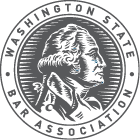What Happens at a Full Board Meeting?
The full board reviews hearing officer recommendations for suspension and disbarment only when a party appeals or when sua sponte review is ordered. The board reviews other hearing officer recommendations under limited circumstances. The hearing officer decisions are written findings of fact, conclusions of law and sanction recommendations. Prior to the meeting, the board generally receives copies of the hearing officer's decision, the hearing transcripts and any exhibits and documents from the proceeding file that the parties designate. The parties also provide briefing to the board and may request oral argument.
The full board also reviews stipulations to suspension or disbarment. Stipulations are agreements between the respondent lawyer and disciplinary counsel to a set of facts, specific RPC violations and a resolution. Prior to the meeting, the board receives the stipulation and any other documents the parties agree will assist the board in its review. The board members discuss the stipulation and issue a written order. If the board accepts the stipulation, it becomes public. If the board rejects the stipulation, it does not become public.
The board can also conditionally accept a stipulation. This allows the board to condition its acceptance on the parties agreement to changes or new items in the stipulation. If both parties accept the conditions, the stipulation is accepted. If one or both parties do not accept the conditions, the stipulation is rejected. Accepted stipulations are sent to the Supreme Court for action. The Court can approve or reject the stipulation. Rejected stipulations are not public.
When reviewing a hearing or a stipulation, the board members discuss the case and then vote on a recommendation to the Supreme Court. Each board member has one vote. The board can make changes to the findings of fact, if the hearing record does not contain evidence supporting the findings. The board cannot substitute its own facts for the hearing officer's facts. The board can make changes it believes are necessary to the conclusions of law and sanction recommendation. The board's discussions are confidential.
If the parties present oral argument, a court reporter is present and the argument is open to the public. The board issues a written order on each matter considered. Usually, these orders are public. If you would like copies of specific board orders, please contact Allison Sato. The board's orders are recommendations to the Washington State Supreme Court. Lawyers are not suspended or disbarred based on the board's orders.
The full board also considers hearing officer recommendations in disability proceedings. These proceedings determine whether a lawyer currently has a mental or physical incapacity, preventing the lawyer from practicing law or defending him or herself in a discipline proceeding. Orders involving disability proceedings are not public. If a lawyer is found to lack capacity to practice law, the lawyer will be transferred to disability inactive membership status. This information is displayed in the lawyer directory






